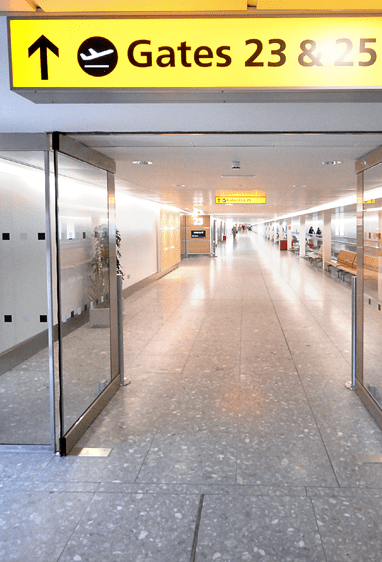It’s holiday season and many of us are packing up and jetting off into the sun for fun, sea, sand and relaxation. It’s all very exciting but there are some really important things people forget to consider when visiting foreign countries, especially when it comes to being safe and staying healthy. Are you prepared? Here are our handy tips.
Table of Contents
1) Get Vaccinated
Preventing an illness is always better than the cure. Certain, more exotic destinations are higher risk so it is important to consult your doctor about the vaccinations you may need to keep yourself protected. The following vaccinations are usually free on the NHS:
- Diphtheria, polio and tetanus (combined booster)
- Typhoid
- Hepatitis A
- Cholera
If you are travelling to countries in northern and central Europe, North America or Australia, you’re unlikely to need any vaccinations. Outside of these areas however, you are likely to need private vaccinations against the following:
- Hepatitis B
- Japanese encephalitis and tic-borne encephalitis
- Meningitis
- Rabies
- Tuberculosis
- Yellow fever
It is important to note that vaccinations are not advised for people with immune deficiencies such as HIV/AIDS, or if you are receiving treatment which affects your immune system such as chemotherapy. You should also speak to your GP before getting vaccinated if you:
- Are pregnant
- Think you could be pregnant
- Are breastfeeding
You can find more information on your travel vaccinations on the NHS travel immunisation website.
2) Keep Hydrated But Avoid Tap Water
Staying well hydrated when travelling out and about abroad will keep you feeling fresh, alert and help you avoid heat stroke and exhaustion.
In countries with poor sanitation it is important that you do not drink the tap water or even use it to brush your teeth unless it has been filtered, bottled (do not drink if seal is broken), boiled or chemically treated. This is because even though the water itself may appear to be clean, many illnesses are contracted through contaminated water because your body is not accustomed to the foreign bacteria, so it must be purified before it is consumed.
Bottled fizzy drinks with the seal intact are normally safe and also hot drinks made with boiled water. However, drinks with ice should be avoided (unless the ice is made with bottled water).
3) Food Safety
If you are travelling to a country where sanitation tends to be poor, you should avoid these foods:
- Salads, such as lettuce
- Uncooked fruit and vegetables, unless washed in safe water and peeled
- Fresh or cooked food that has been stood at room temperature in warm environments or exposed to flies and insects such as in an open buffet
- Unpasteurised milk, cheese, ice cream, and other dairy products
- Raw/uncooked seafood and shellfish
- Food from street traders, unless recently prepared and served hot on clean crockery
Nuts and other shelled foods are usually safe. Food served in good standard hotels and restaurants is not always safe because it is prone to contamination during preparation. Try to choose restaurants with a good reputation for serving food that is safe to consume and always wash your hands after visiting the washroom and before preparing food.
When abroad, observing the quality and cleanliness of a washroom is a good way to gauge the hygiene standards of any establishments. So in hotels and restaurants, if the washrooms are unkempt, dirty and unhygienic, it’s a possibility the premises may take a similar attitude in its kitchen. Look to eat and stay in places which appear to have good hygiene standards.
For more information on the sanitation levels in the country you’re planning to travel to, visit TravelHealthPro.
Other general advice when travelling abroad includes the regular use of hand sanitizer, avoid touching surfaces and your mucus membranes (eyes, nose and mouth) without washing hands first, regularly use insect repellents to avoid contracting diseases carried by insects, and take vitamins and probiotics to replace nutrients lost through sweating and to aid diarrhoea or constipation caused by foreign bacteria.
Oh, and don’t forget your sunscreen! Happy holidays, from the Citron Hygiene Team
